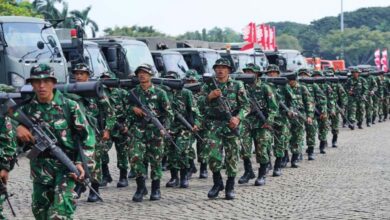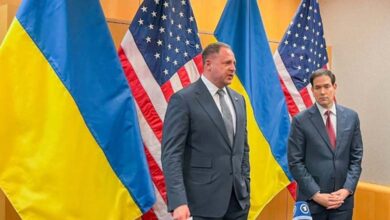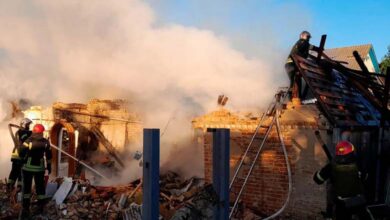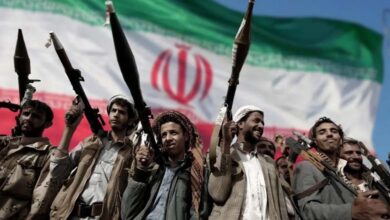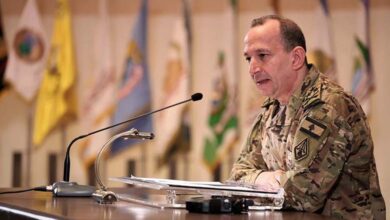Mauritania faces a wave of refugees as conflict in mali intensifies
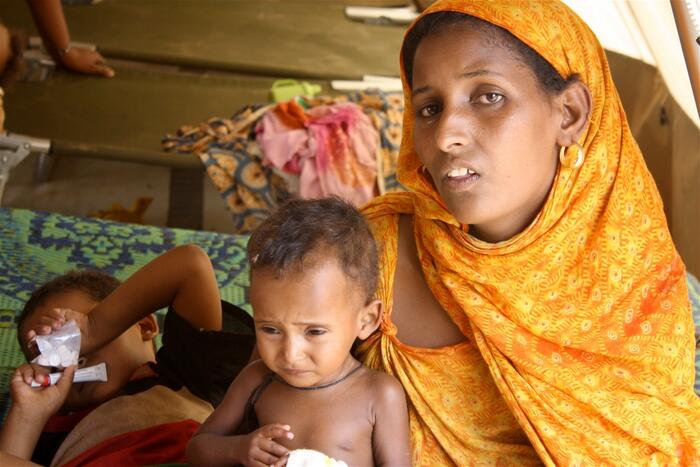
The arrival of new refugees coincides with escalating fighting in northern Mali between the Russian-backed Wagner Group and rebel groups
The Mauritanian government fears the repercussions of the increasing influx of refugees fleeing the “intensification of conflict in Mali” to its territories. Therefore, it has announced an emergency plan, calling on international partners to allocate approximately a quarter of a billion dollars for their humanitarian care over a period of 10 years.
Eastern Mauritania has turned into a refuge for Malians fleeing the escalating battles in the north of their country. The scattered huts and sandy alleys located kilometers from the Malian border have become the home for these refugees.
The Minister of Economy and Sustainable Development of Mauritania, Abdel Salam Mohamed Saleh, expressed his country’s concern about the phenomenon of refugees during the Global Forum on Migration held in Geneva from December 13 to 15.
He revealed that “the current situation in the country is different from what it was in 2019 due to the intensification of conflict in Mali.” He pointed out that the number of forcibly displaced refugees has doubled, with more than 123,000 refugees on Mauritanian territory, 86% of them residing in the eastern region in the Um Bara camp (1500 kilometers southeast of Nouakchott), according to a statement by the minister published on the ministry’s official website.
The Mauritanian government representative added that the continuous and increasing refugee situation in Mauritania necessitated the development of an approach ensuring the educational integration of their children. The success of the plan requires sufficient financial resources amounting to $240 million over 10 years.
The Mauritanian government delegation discussed with the German Minister of Economic Cooperation and Development, Svenja Schulze, the rotating president of the General Assembly of the Sahel Alliance, the situation in the Sahel region, and ways to enhance joint efforts for the benefit of refugees and displaced persons in the Sahel region. They also discussed how to better achieve the goals of the Global Compact on Refugees at the Sahel regional level.
The German Minister of Cooperation affirmed “Germany’s readiness to accompany and support countries in the Sahel region to alleviate the suffering of refugees,” calling on the international community to coordinate its efforts to address this worsening humanitarian crisis in the Sahel region, which, according to her, is facing multiple crises.
The United Nations High Commissioner for Refugees (UNHCR) in Mauritania has previously provided over $25 million to care for refugees. Since the deterioration of the security situation in Mali starting in 2012, more than 64,000 Malian refugees arrived at the Um Bara camp a few months later, according to official statistics. In 2017, Mauritania, Mali, and the UNHCR signed an agreement for the voluntary return of more than 50,000 Malian refugees from this camp to their homeland.
A recent report published by the French newspaper “Le Figaro” highlighted the situation of refugees coming from various Malian cities, especially from the north. The fighting in Mali has intensified in recent weeks, leading tens of thousands of Malians to seek refuge again in eastern Mauritania. Approximately 100,000 refugees were counted just tens of kilometers from the Malian border, in the Mbera camp.
A Malian refugee who arrived in Mauritania in 2012 stated, “There are only herders here, and if there are no more trees for grazing, there will be no more animals.” He added that “when the land burns, it is the economy that burns.” The young man fled Mali after the start of the uprising by the Tuareg separatist movement and some extremist groups.
With the ongoing conflict in Mali, the number of refugees continues to rise. Since August 2023, the UNHCR has recorded the peak of arrivals in the eastern region of Mauritania, with more than 10,000 new refugees identified in the camp since the beginning of 2023.
The arrival of these new refugees coincides with the escalation of hostilities in northern Mali between the Malian army (FAMA), supported by the Russian “Wagner” group, and the rebel groups signatory to the 2015 Algerian Peace Agreement, which has now been surpassed by time.
The extremist movements affiliated with the “Jama’at Nasr al-Islam wal Muslimin” group, a branch of al-Qaeda, have intensified their attacks. Since last summer, they have besieged the city of Timbuktu, despite a slight improvement in access in recent weeks. The withdrawal of the United Nations Multidimensional Integrated Stabilization Mission in Mali (MINUSMA), which has been present since 2013, has served as a catalyst for further instability.


